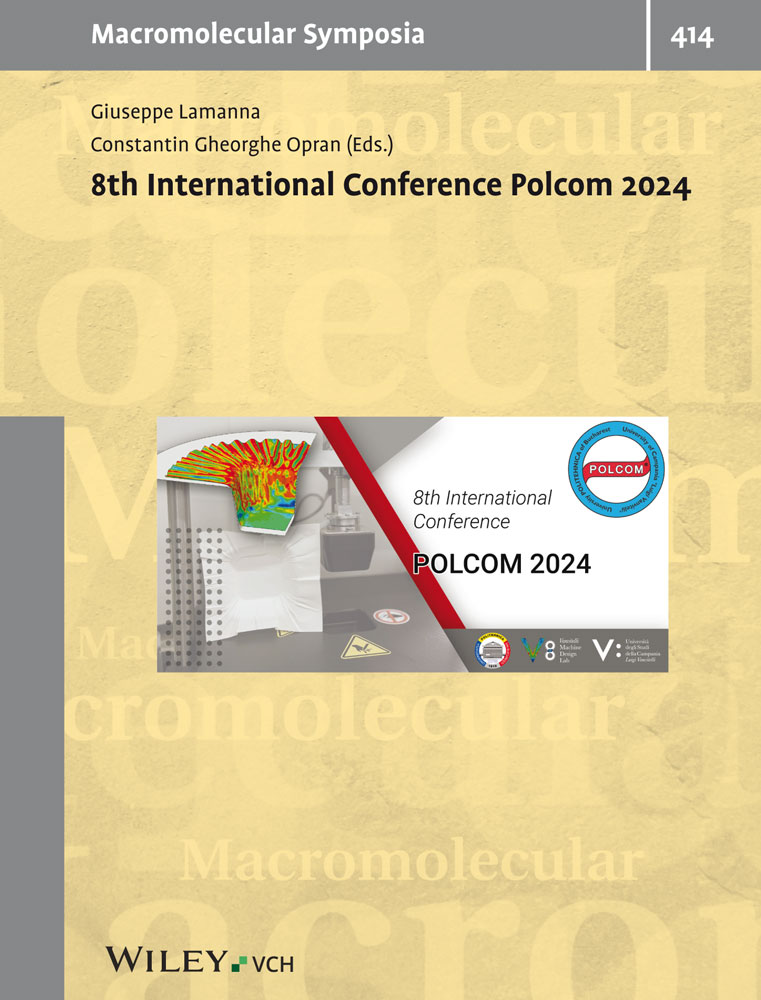Properties of poly(vinyl alcohol)-graft-polyacrylamide copolymers depending on the graft length. 1. Redistribution of hydrogen bonds and its influence on the copolymer behavior in aqueous solution
Abstract
A series of poly(vinyl alcohol)-graft-polyacrylamide copolymers (PVA-g-PAA) with a constant number N but various molecular weights (lengths) of graft chains, which are intramolecular polymer-polymer complexes (intraPC), were investigated. The changes in the system of intramolecular hydrogen bonds and state of macromolecules in a solution are considered. The effect of partial detachment of PAA grafts from the main chain caused by the increase in molecular weight of grafts to a more than some critical value (M̄ vPAAcrit≈4.3·105 at N=9) has been revealed. When the length of grafts increases, the thermodynamic quality of water with respect to copolymers improves. The values of z-average radius of inertia, characteristic viscosity and the number of macromolecules in associate go through a minimum at M̄ vPAA=4.3·105 and then sharply grow with increasing length of grafts.




